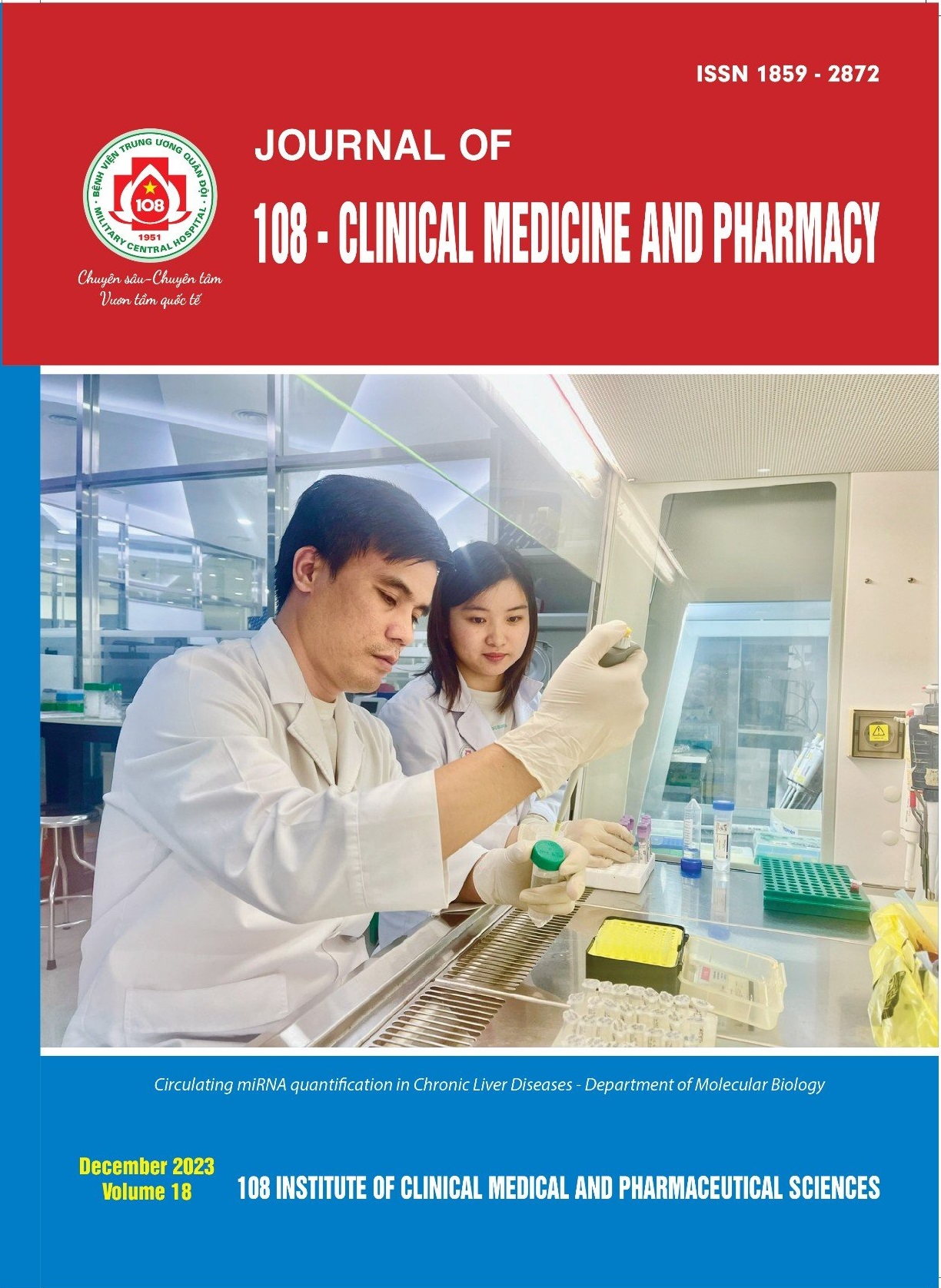PD-1.1 polymorphism associates with liver cirrhosis caused by chronic HBV infection
Main Article Content
Keywords
Tóm tắt
Objective: PD-1 is an immunoinhibitory receptor which plays vital role in pathogenesis of hepatitis B virus (HBV) infection. The aim of this study was to understand the relationship between PD-1.1 polymorphism in HBV infection and liver disease progression. Subject and method: 154 chronic hepatitis B virus (CHB), 127 liver cirrhosis (LC), 186 hepatocellular carcinoma (HCC) and 160 healthy controls. The PD-1.1 polymorphism was genotyped by directed Sanger sequencing. Result: The PD-1.1 TT genotype was found to be a risk factor for LC predisposition of CHB patients. Conclusion: The PD-1.1 polymorphisms are related to the progession of HBV-related liver disease, especially as a prognostic factor for cirrhosis liver in patients with chronic hepatitis B.
Article Details
Các tài liệu tham khảo
2. Vietnam Ministry of Health (2020) Guidelines for the diagnosis and treatment of Hepato cellular carcinoma.
3. Salmaninejad A, Khoramshahi V, Azani A, Soltaninejad E, Aslani S, Zamani MR, Zal M, Nesaei A, Hosseini SM (2017) PD-1 and cancer: molecular mechanisms and polymorphisms. Immunogenetics 70(2): 73-86.
4. Chang JJ, Lewin SR (2007) Immunopathogenesis of hepatitis B virus infection. ImmunolCell Biol 85(1): 16-23.
5. Guidotti LG, FV C (2006) Immunobiology and pathogenesis of viral hepatitis. Annu Rev Pathol 1: 23-61.
6. Zhang G, Liu Z, Duan S, Han Q, Li Z, Lv Y, Chen J, Lou S, Li N (2010) Association of polymorphisms of programmed cell death–1 gene with chronic hepatitis B virus infection. Hum immunol 71(12): 1209-1213.
7. Hashemi M, Karami S, Sarabandi S et al (2019) Association between PD-1 and PD-L1 polymorphisms and the risk of cancer: A meta-analysis of case-control studies. Cancers (Basel) 11(8): 1150-1172.
8. Hong Peng Q-LL, Si-Hui Hou, Jun Hu, Jia-Hao Fan, Jin-Jun Guo (2015) Association of genetic polymorphisms in CD8+ T cell inhibitory genes and susceptibility to and progression of chronic HBV infection. Infect Genet 36: 467-474.
9. Hou Z, Zhou Q, Lu M, Tan D, Xu X (2017) A Programmed cell death-1 haplotype is associated with clearance of hepatitis b virus. Ann Clin Lab Sci 47(3): 334-343.
10. Ishizaki Y, Yukaya N, Kusuhara K et al (2010) PD1 as a common candidate susceptibility gene of subacute sclerosing panencephalitis. Hum Genet 127(4): 411-419.
11. Li Y, Zhang HL, Kang S, Zhou RM, N W (2017) The effect of polymorphisms in PD-1 gene on the risk of epithelial ovarian cancer and patients’ outcomes. Gynecol Oncol 144(1): 140-145.
12. Lv Feng, Gao YF, Zhang ZH et al (2011) Polymorphisms in programmed death-1 gene are not associated with chronic HBV infection in Chinese patients. World J Hepatol 3(3): 72-78.
13. Rehermann B (2013) Pathogenesis of chronic viral hepatitis: Differential roles of T cells and NK cells. Nat Med 19(7): 859-868.
14. Sharpe AH, KE P (2018) The diverse functions of the PD1 inhibitory pathway. Nat Rev Immunol 18(3): 153-167.
15. WHO. Presentative Office-Vietnam (2018) http://www.wpro.who.int/vietnam/topics/hepatitis/factsheet/en/
16. WHO. Global hepatitis report (2017) http://www.who.int/hepatitis/publications/global-hepatitis-report2017/en/
17. Shuai Z, Leung MW, He X, Zhang W, Yang G, Leung PS, Eric Gershwin M (2016) Adaptive immunity in the liver. Cellular & Molecular Immunology 13: 354-368.
 ISSN: 1859 - 2872
ISSN: 1859 - 2872
